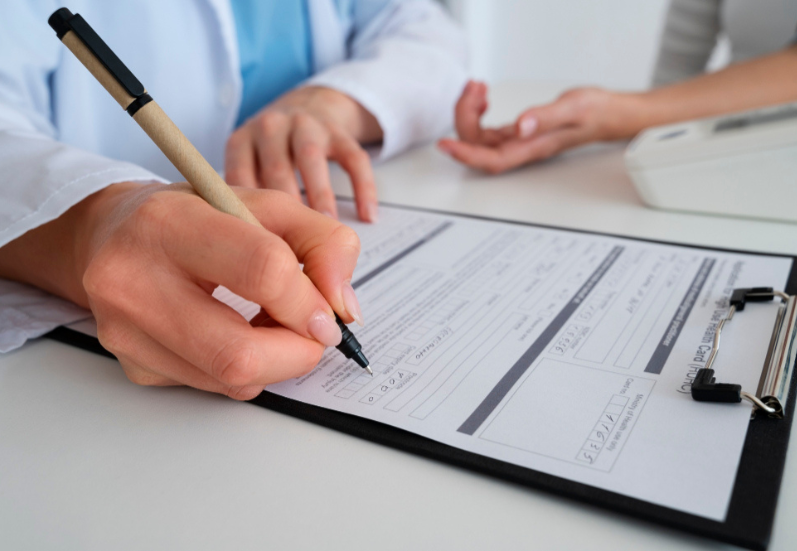
Getting injured or having an accident is a scary business. You need to be prepared for anything and everything. However, this crazy and scary experience can be eased if you know that you are covered financially.
This is where a personal injury lawyer comes into the scene. Therefore, stick around to learn why you need a personal injury lawyer and how the personal injury claim settlement process operates.
Here we go!
Benefits of Hiring a Personal Injury Lawyer

Facing the aftermath of an accident can be overwhelming. Amid physical and emotional recovery, dealing with legal proceedings and insurance negotiations only adds to the stress.
This is where personal injury lawyers come in. Their expertise and dedication go beyond providing legal representation; they provide much-needed reassurance and support during a challenging time.
#1
One of the fundamental benefits of hiring a personal injury lawyer is gaining access to expert legal advice. A proficient attorney specializing in personal injury claims, like those at Idaho Advocates, brings in-depth knowledge about injury law and understands the intricate legal maneuvers insurance companies utilize to minimize payouts.
They are adept at navigating complex legal procedures, ensuring their clients’ rights are protected and advocated for.
#2
In addition to delivering expert counsel, personal injury lawyers significantly increase the likelihood of achieving higher compensation for your claim.
Research has shown that individuals who hire lawyers receive substantially larger settlements. This increased financial recovery is crucial in addressing medical expenses, lost income, and other damages resulting from the accident.
#3
Moreover, when you engage a personal injury lawyer like those at Idaho Advocates, you gain an invaluable ally in alleviating the stress of handling legal intricacies. Your attorney should provide managing communication with insurance adjusters to coordinate interactions with healthcare providers and law enforcement.
Attorneys provide comprehensive assistance, allowing clients to focus on recovery without being burdened by administrative or legal tasks.
#4
Another benefit lies in the financial aspect. Idaho Advocates and many other personal injury lawyers operate on a contingency fee basis, meaning clients must only pay if their case is won. This arrangement eliminates any upfront fees and financial risks for clients.
It grants individuals access to exceptional legal representation and advocacy without shouldering financial burdens during an already trying time.
In summary, the advantages of hiring a personal injury lawyer are multifaceted—providing expert legal guidance, enhancing the prospects of obtaining higher settlements, mitigating stress during recovery, and eliminating upfront financial obligations. These factors collectively empower individuals seeking justice after suffering injuries due to someone else’s negligence.
Filing a Compensation Claim

When it comes to seeking compensation after an accident, there is a specific sequence of steps that you and your personal injury lawyer will follow. Think of it as a carefully crafted plan for building your case to secure the compensation you rightfully deserve. Each step is vital in strengthening your claim and achieving a favorable outcome.
Follow each step of this content in order to understand the personal injury claim settlement process and how to navigate these nuances effectively. Here we go!
Step I – Initial Consultation
Upon engaging the services of a personal injury lawyer, an initial consultation will be scheduled. During this session, it’s crucial to openly discuss the details of your case and any questions or concerns you may have. This meeting helps establish clear communication between you and your attorney, creating a foundation of trust and understanding.
Your lawyer will use this opportunity to gain insight into the specifics of your accident, including any evidence you’ve collected, medical reports, and any communication with insurance companies. This supportive environment allows you to ask questions about the legal process without feeling rushed or uninformed.
Step II – Case Evaluation
Following the initial consultation, your lawyer will evaluate your case by assessing various factors, such as examining the extent of your injuries and determining ongoing medical treatment needs. This comprehensive assessment helps your lawyer estimate a fair claim amount that accurately reflects the impacts of the accident on your life.
For example, suppose you sustained severe injuries resulting in long-term disability. In that case, your lawyer will consider not only your current medical expenses but also any future treatments or therapy you may require as part of your recovery. They’ll factor in lost wages from missed work due to those injuries and psychological distress caused by the accident. All these details contribute to building a solid foundation for your claim.
Step III – Documentation
Gathering relevant documentation is pivotal in substantiating your claim. This might include medical reports detailing your injuries and treatment regimen, police records from the incident, witness statements, and any available insurance information related to the accident.
Accurate documentation is indispensable as it provides a detailed account of the repercussions of the accident on your life. It demonstrates the financial impact through records of medical expenses and lost wages while also capturing the emotional toll through eyewitness accounts and mental health evaluations if required.
Step IV – Claim Submission
The submission of your compensation claim represents a crucial stage in the process. Your personal injury lawyer drafts a thorough and compelling explanation of the damages incurred due to the accident. Therefore, before submitting it to the respective insurance company or the liable party responsible for compensating you.
This step is where legal expertise shines; meticulous drafting ensures that every detail is captured accurately and professionally, significantly increasing the probability of securing an equitable settlement.
By meticulously following these steps with the guidance of your personal injury lawyer, you proactively establish a solid foundation. A pivotal aspect in ensuring just reparation for your losses.
Legal Process and Paperwork
Navigating the legal process can be overwhelming, especially if it’s your first time dealing with a personal injury claim. This is where personal injury lawyers come in to lighten that burden. They are well-versed in the intricacies of the legal system and know precisely what paperwork needs to be filed, when, and how. They must ensure all documentation is accounted for and submitted correctly.
Understanding legal jargon and court requirements can be challenging for individuals unfamiliar with the law. This is why hiring a personal injury lawyer can be crucial. They manage the documentation involved – from filling out forms to meeting court deadlines. This streamlines the process for you, allowing you to focus on your recovery while they handle the legal aspects.
Consider this: when filing a motion or a subpoena, it’s easy to miss critical details, but with professional legal representation, these potential pitfalls are mitigated.
Everything from filing motions, summonses, and subpoenas is in capable hands. And don’t forget about Idaho’s statute of limitations for personal injury cases; it highlights how professional representation ensures compliance with local laws.
Personal injury lawyers ensure that every aspect of your case complies with local laws and regulations. Partners like the Idaho Advocates ensure all court filings are timely and accurate on your behalf. Doing so centralizes the management of such documentation and deadlines.
As we progress through the legal process, we start seeing the significant value in having professional help by your side throughout this journey.
Gathering Evidence for Your Case
Arming yourself with compelling evidence is crucial when pursuing a personal injury claim. This evidence can make or break the strength of your case when advocating for compensation. Let’s explore different methods of evidence collection that can significantly benefit your case.
Witness Statements
A credible eyewitness account can significantly strengthen your claim. Look out for anyone who saw the accident, and ask for their contact information. Their testimonies can provide valuable insight into the sequence of events and help corroborate your version of the accident.
Keep in mind: The more details they can recall, the better.
Security Footage
Many public places and establishments have cameras that may have captured the accident. Obtaining footage from these sources could provide visual evidence to substantiate your claim and give a clearer picture to support your case.
You reinforce the validity of your injury claim by presenting clear video evidence showing the series of events leading up to the accident.
Medical Records and Expert Testimony
Detailed medical reports that chronicle your injuries and necessary treatments are a critical component. These records carry significant weight in establishing the extent of harm caused by the accident.
Secure expert testimonies from healthcare professionals who have treated your injuries. Their professional assessment lends credibility to your case and helps quantify the impact of your injuries on your daily life.
Accident Reconstruction
In complex cases where liability is contentious, hiring specialists to recreate the accident scene can provide irrefutable proof supporting your claim.
Accident reconstruction experts utilize scientific principles to analyze physical evidence, vehicle damage, skid marks, and other factors to reenact the accident’s circumstances. This thorough reconstruction provides demonstrable proof to fortify your position in court.
Understanding the importance of securing comprehensive evidence will be instrumental in bolstering your case’s credibility and increasing the likelihood of a favorable outcome. It’s not just about showing what happened; it’s about providing indisputable confirmation supporting the validity of your claim.
Now equipped with substantial evidence, you are better prepared to navigate the complexities of negotiating settlements with insurance companies and defense lawyers.
Negotiating Settlements
Dealing with insurance companies and legal jargon can be overwhelming, but your personal injury lawyer will guide you and act on your behalf. Here’s what to expect as you initiate negotiations for a settlement that covers all your damages.
Initial Offer Review
Reviewing the initial settlement offer is crucial. Your attorney carefully scrutinizes the offer to ensure that it adequately covers all the damages and losses you have incurred due to the accident. This includes current medical expenses, potential future medical costs, lost wages, property damage, and pain and suffering.
It’s essential that your lawyer thoroughly examines the terms and conditions of the offer to make sure that all crucial elements have been included and appreciated. Remember, the goal is to secure compensation that reflects the accident’s impact on your life.
Counteroffers
Once your lawyer has reviewed the initial settlement offer, they may begin negotiating with the opposing party. Using the evidence and documentation gathered during the investigation phase, your attorney will present a counteroffer that aligns with your best interests. Counteroffers are part and parcel of the personal injury claim settlement process. Therefore, you be ready with it.
At Idaho Advocates, our experienced personal injury lawyers are adept at utilizing compelling evidence to negotiate for fair settlements on behalf of our clients. Our thorough approach often leads to our clients receiving significantly higher compensation than initially offered. This emphasizes just how crucial it is to have skilled legal representation during this phase of seeking compensation.
Mediation
If necessary, the negotiation process may escalate to mediation. During mediation sessions, your lawyer will represent you and work with the opposing party to facilitate a mutually agreeable settlement without going to court.
Mediation allows both parties to openly discuss their concerns and reach a compromise without resorting to lengthy court battles. Your lawyer’s role in mediation is to advocate for your rights and ensure that any proposed settlements adequately address your needs and losses following the accident.
The Final Thought
By navigating these negotiations strategically, your personal injury lawyer will strive to secure a settlement that reflects the full extent of damages caused by the accident, ensuring that you receive just compensation for your suffering and losses. Keep following our page for more such legal content. Thank you.
Read Also:
- Factors That Affect The Value Of A Personal Injury Settlement
- Debunking Common Myths About Personal Injury Claims
- How A Personal Injury Lawsuit Can Change Your Life











0 Reply
No comments yet.